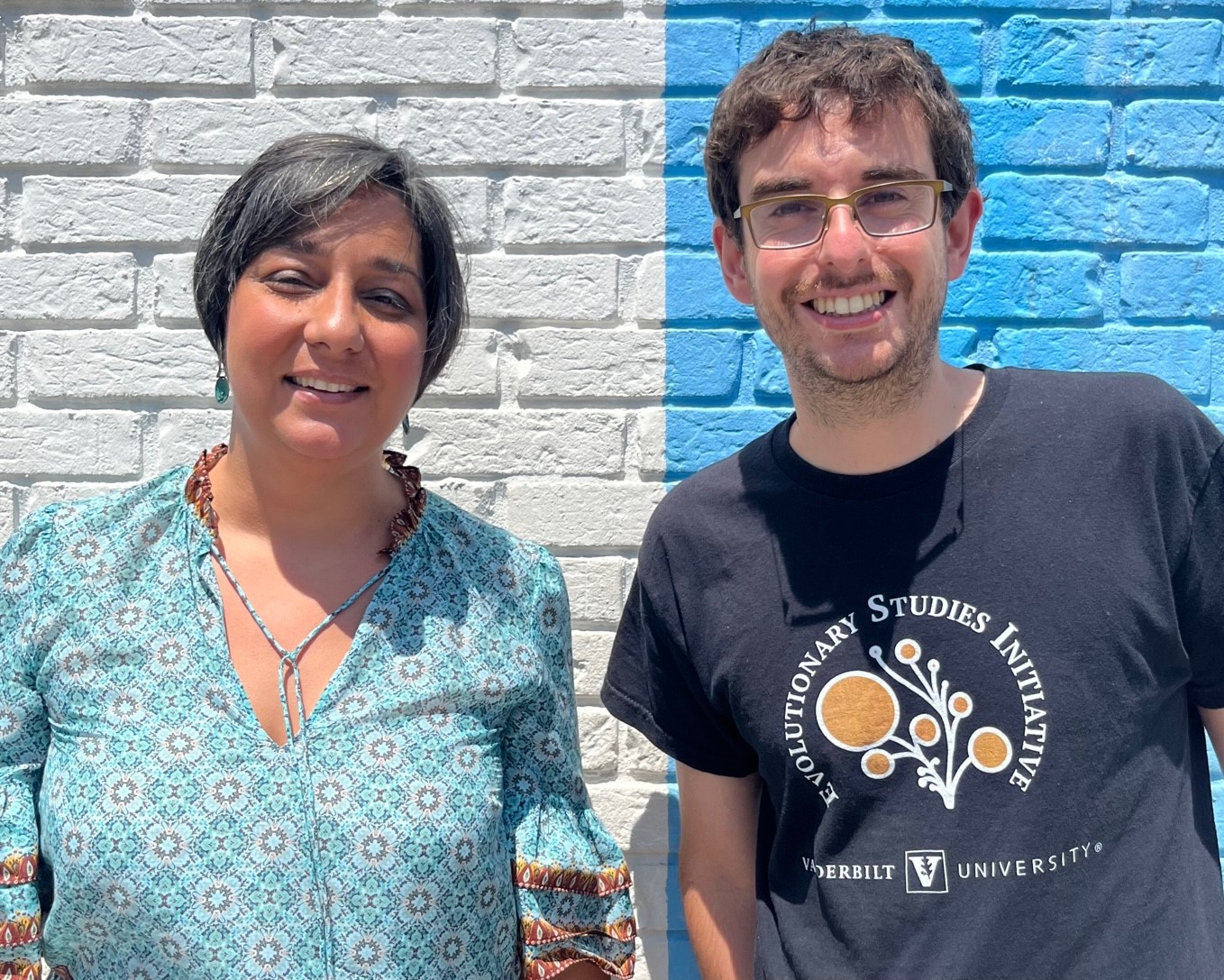New Avenue for Understanding Antibiotic Resistance Evolution
By: Andy Flick, Evolutionary Studies scientific coordinator
In a new paper led by Houra Merrikh, the team showed that oxidative stress is a major factor in the evolution of antibiotic resistance in bacteria. The paper, “Oxidative stress drives mutagenesis through transcription-coupled repair in bacteria,” was published in the Proceedings of the National Academy of Sciences.
“Chemical reactions happen in our cells all the time. Most of them are controlled by the cell, and help it grow and perform its function. However, the biproduct of some essential reactions can be harmful for the cell. These reactions commonly involve oxygen since it is a very reactive molecule. When this molecule is present, it can cause oxidative stress. This type of stress caused by biproducts of oxygen metabolism can react with different parts of the cell, such as the DNA, RNA, or proteins, which will have both negative and sometimes positive consequences,” explained Merrikh, Professor of Biochemistry and first author Juan Carvajal-Garcia’s advisor.

The team tested the effects of oxidative stress on mutagenesis and the evolution of antibiotic resistance by exposing cells to different environments likely to reduce oxidative stress. They observed that mutagenesis and the evolution of antibiotic resistance were slower across diverse bacteria species.
Carvajal-Garcia used a metaphor to describe mutagenesis. Basically, it’s like checking out a book from a library, accidentally removing one word from the book, and then the next person gets the book missing that word. Generally, it doesn’t affect the story; sometimes the story can’t be understood without the word, and occasionally, the missing word makes the story even better! See Box 1 for the full metaphor.
Box 1:
Let’s say you pick up a book from the library and read it. Then you bring it back, but in the process of reading it you damage the book a little bit, and one of the words in the book can’t be read. When the next person picks up this book from the library and reads it, they are going to read a slightly modified version of the book, due to that one word missing. When this happens to the DNA, which is what cells use as their instructions book, we call that a mutation.
Most of the time, the new reader will be able to understand the book well, and just guess the missing word from the context. A few times, the word is so important for the plot that the book can’t be understood without it. And every once in a while, that missing word makes the book more interesting and fun. Similarly, a lot of mutations have no effect on a cell’s ability to understand it’s genetic code (neutral or synonymous mutations), some have a very big effect and make cells unable to function, and some will actually make a cell gain a new function that is beneficial, like becoming resistant to an antibiotic.
After learning that mutagenesis was slower in the above environments, the team then tested the effects of the nucleotide excision repair pathway on mutagenesis. This pathway is responsible for fixing some of the damage caused by oxidative stress. They found that in the absence of oxidative stress, the nucleotide excision repair pathway actually increases the rate of mutagenesis on the cell. The team showed that when the pathway is lacking one of three important components, it reduces the rate of mutagenesis in the absence of oxidative stress. Their results suggest that evolution caused by oxidative stress is dependent on the nucleotide excision repair pathway.
Merrikh explained the next steps as follows, “from a basic science perspective, we’d like to know where the endogenous DNA damage that makes this DNA repair pathway mutagenic is coming from. In terms of the translational aspects, we have a lead compound that can inhibit this DNA repair pathway, which limits mutagenesis and the evolution of antibiotic resistance development in our experiments. We are and will continue characterizing this compound further and hopefully develop it into a drug for use in the clinic as a means to prevent antimicrobial resistance development during treatment of infections.”
This would be a huge development for containing bacteria-borne infections caused by things like methicillin-resistant Staphylococcus aureus (MRSA) or vancomycin-resistant Enterococci (VRE), which can grow during treatment with antibiotics and cause serious illness.
The pair are excited to help the larger community to understand the role of mutagenesis in evolution.
Carvajal-Garcia, a frequent participant in Evolutionary Studies journal club, said, “we are part of this group because the fields of mutagenesis at the mechanistic level and evolution in general have not been thoroughly connected. Both sides need each other in order for us to learn how mutations arise and the effects of these changes in the blueprint of DNA impact during long-term evolution. Being able to hear and interact with evolutionary biologists gives us the opportunity to both educate them at the mechanistic and molecular level of mutagenesis and allows us to learn about evolutionary biology and the impact of this on organismal behavior over long periods of time.”
The cross-disciplinary nature of evolutionary studies is so important to Merrikh that she was part of the team responsible for bringing the Evolutionary Studies Initiative to life and currently serves on the advisory board.
Funding Statement: This work was supported by the NIH R01-AI-127422 and NIH R01-GM-127593 to H.M. and a HHWF fellowship to J.C.G. Flow Cytometry experiments were performed in the Vanderbilt Flow Cytometry Shared Resource. The Vanderbilt Flow Cytometry Shared Resource is supported by the Vanderbilt Ingram Cancer Center (P30 CA068485) and the Vanderbilt Digestive Disease Research Center (DK058404).
Citation: Carvajal-Garcia, J., Samadpour, A.N., Hernandez Viera, A.J. and Merrikh, H., 2023. Oxidative stress drives mutagenesis through transcription-coupled repair in bacteria. Proceedings of the National Academy of Sciences, 120(27): e2300761120.